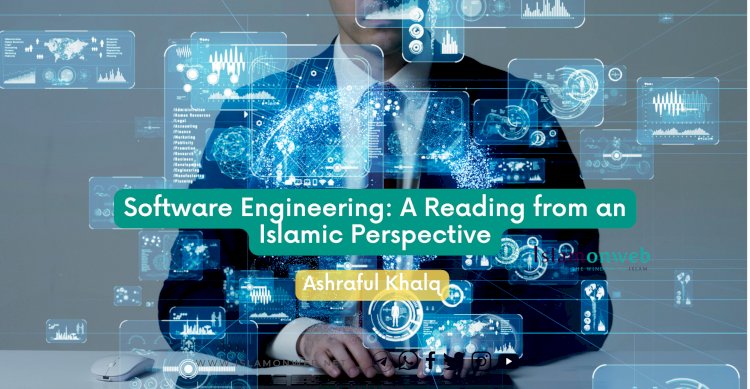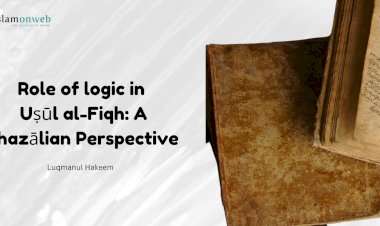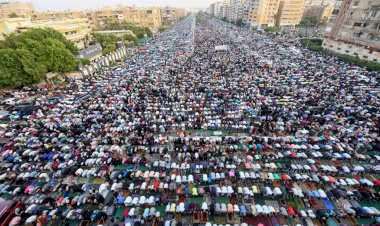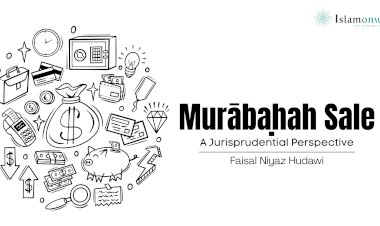Software Engineering: A Reading from an Islamic Perspective
Software engineering is an art form that focuses on the creation of computer programs that are tailored to the requirements of the user. After being coined by a NATO research group in the early part of 1967, the word "engineering" was eventually merged with software. Subsequent years saw a convulsion of such engineering activity as well as professional courses that were confined to moulding excellent professionals. According to the general Islamic ruling, all forms of software engineering are allowed because of the principle that "the basic (jurisprudence) of all things is to be permitted." The author of Jamʿ al-Jawāmiʿ, al-Subkī, gives a hint about this principle when he says, "and after it (the revelation), the base of all troublemaking is a prohibition (Taḥrīm), and that of all useful is permission". From the aforementioned quote, it is fairly simple to draw the conclusion that software engineering will be categorised under permissible acts, unless it is used for unethical usages.
The Use of Illegally Obtained Software or Programming Languages
It is common practice to rely on the application developing system or designing software when developing new software, and this software helps them to achieve their goal in a very short amount of time. This software also assists them in meeting their target. Since such software is expensive, the unethical practice of utilizing a hacked or pirated version is highly common. The researcher wants to investigate the legal concerns that arise from building software by using such a hacked one. If the religious decree allows for such hacking (the issue of hacking will be discussed in the following articles – In Sha Allah), then the discourses on using it do not deserve any importance; however, if the religious decree does not allow for such hacking, then the hacked software would be subsumed under the verdict of "occupied one."
The act of 'occupying' (al-Ghaṣb) is regarded as a prohibited practice, and Imam al-Nawawi proves this ruling in his Majmūʿ by citing lines from the final sermon of the Holy Prophet (ﷺ), in which he advised the large crowd of his disciples about the violation of dealing with other people's properties. In this sermon, the Holy Prophet (ﷺ) advised the large crowd of his disciples about the violation of dealing with other people's properties. Although the prohibition of using the "occupied" is addressed by all of the classical Islamic legal texts, the legality of what it produces as well as who owns it demands a short explanation in this setting. The researcher found a good resemblance with this context in two issues that were discussed in the chapter of al-Ghaṣb; one of them is a case related to an occupied goat that was copulated by the occupier's male goat and later it gave birth for a baby, and the second case is related to the cultivation in an occupied land and later it yielded a good harvest. Both of these cases were found after the researcher referred to the classical oeuvres.
In al-Umm, Imam al-Shafiʿī gives a ruling that a new-born in the case of an occupied goat would be owned by the real proprietor of the goat and not by the occupier. There are two reasons for this ruling: first, there is nothing for copulation according to the Sharia concept, and second, the thing he invested in is not the same that yielded (he invested sperm, and the production was a new-born). Because the commands and graphics used in pirated software resulted in ‘new software’ that is not the same as the commands that were 'invested,' this verdict states that the software that was developed by using a pirated designing software should be owned by the creator of the programming language rather than ‘the occupier’. This is due to the fact that the commands and graphics used in hacked software resulted in new software.
Imam al-Mawardi, in his book Al-Ḥawī Al-Kabīr, provided an explanation of the instance of cultivation on occupied territory with a wide meaning. The gist of his explanation is as follows: if the cultivation was done with the seeds belonging to the perpetrator himself, there would be four different scenarios. 1) to reach to an agreement that will allow the agriculture to continue by charging rent 2) to reach an arrangement with the landowner about selling the cultivation; 3) to reach an agreement with the offender about buying the property; 4) to not reach any deal at all. There would be no additional legal issues than al-Ghaṣb in the first three scenarios, and the owner of the property would be the developer in the first and third scenarios, while the landowner would own the property in the second scenario. The wrongdoer is required to provide restitution for the damage or loss that the landowner has incurred in the final form.
If we were to apply this judgement to our case, the newly created software would be considered lawful property for the offender (the person who used the hacked software) in the first and third situations after the rent in the first situation and the purchase price in the third situation had been paid. In the second scenario, the programmer who created the program language would become the owner of the software after they had paid the necessary fee to the offending developer. In the fourth scenario, as there wouldn't have been able to reach a consensus with anyone, so it would have to be destroyed by force. In the event that the offender sells this software to a third party, the third party (who acquired it from the offender) will be held liable for any issues that may arise, and the program language developer retains the right to retrieve the program from the third party. If the program language developer accepted compensation from the second party, he has the legal option to seek the compensation money from the guilty party; however, this option is available to him only if he was unaware of the guilty party (ie hacker developer) over the course of his dealings with the guilty party.
Notes
Al-Subki, Abu al-Naswr Abdul Wahhāb bin Ali bin Abdul Kafi Tajuddīn. (nd). Jamu' al-Jawāmi'. Beirut : Daru Al-Fikr. Vol- 2 P- 394
Al-Nawawī, Abū ZakariyyaYaḥyā bin Sharafuddīn.(nd). al-Majmū’ Sharḥ al-Muhadhdhab. Jidda : Maktabat Al-Irshad. Vol- 14, P-227
Al-Sh āfi, Muhammad bin Idrīs. (H 1393). Kitāb Umm. 2nd Edition. Beirut : Darul Marif, H 1393. Vol- 3, p- 255
Al-Māwardi, Abū Ḥasan Ali bin Muhammad bin Habīb. (1994). Al-Hāwi Al-Kabīr Fi Fiqh Madhab al-Imam Shafi. Beirut : Darul Kutubul Ilmiyya. Vol-VII. P- 396-399
About the author
Ashraful Khalq is a PhD Scholar in Centre for Development Studies (JNU). This ARTICLE is taken from his PG dissertation submitted in Darul Huda Islamic University, India
Disclaimer
The views expressed in this article are the author’s own and do not necessarily mirror Islamonweb’s editorial stance.
1 Comments
-

Assalamualaikum The article deals with most relevant topic in the current scenario, almost everyone uses pirated softwares as the pricing is not affordable. In the case of engineering or programming most tools and languages are open source ( would be free to use and modify ).
























Leave A Comment